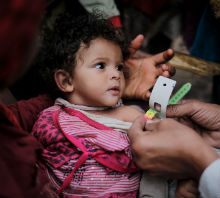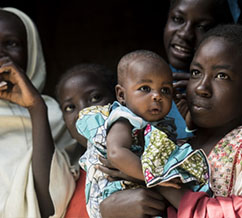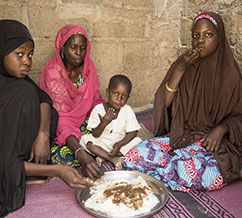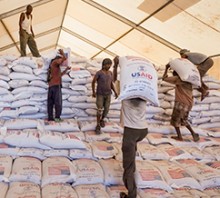Speeches Shim
From January 28–30, clashes between armed separatist groups and Republic of YemenGovernment (RoYG) forces in Yemen’s port city of Aden resulted in at least 39 deaths,injured more than 220 people, and prompted the temporary suspension of commercialand humanitarian activities in the city. The UN and humanitarian partners launched the 2018 Yemen Humanitarian ResponsePlan (HRP) on January 20, requesting nearly $3 billion to provide life-saving assistance to13.1 million vulnerable people. The 2018 Yemen HRP ranks as the largest humanitarianappeal globally and represents an approximately 26 percent increase in fundingrequirements compared to 2017
Boko Haram-related insecurity continues to pose grave risk for civilians in the Lake Chad Basin region, according to the UN. Following a decrease in reported attacks during the first half of 2017, the number of attacks increased during the latter half of the year, with monthly civilian casualties peaking at more than 140 in November. In Niger’s Diffa Region, Boko Haram-related civilian casualties declined from 2016; however, the number of suspected Boko Haram attacks increased from approximately 80 attacks in 2016 to more than 100 attacks in 2017.
On December 21, parties to South Sudan’s conflict signed a COH, agreeing to cease all military action and to disengage forces across the country by December 24. The 11 signatories also committed to protect civilians and allow unimpeded humanitarian access; the parties are expected to address longer-term security arrangements and governance issues during the High-Level Revitalization Forum scheduled for early 2018.
On December 20, the Kingdom of Saudi Arabia (KSA)-led Coalition announced it would reopen access to Yemen’s Al Hudaydah Port for commercial shipments, including fuel, for a 30-day period. The Coalition had closed Yemen’s Red Sea ports, including Al Hudaydah and Al Saleef, on November 6 after the KSA intercepted a missile launched by Al Houthi forces toward the KSA’s capital city of Riyadh. Since the announcement, the Coalition’s Evacuation and Humanitarian Operations Cell (EHOC) has allowed several commercial food and fuel ships to enter the Red Sea ports.
On December 21, Nigeria’s Borno State Commissioner of Health announced the end of the state’s cholera outbreak after more than two weeks with no new recorded cholera cases. Health officials recorded nearly 5,400 suspected and confirmed cholera cases, including 61 related deaths, between mid-August and December 17. Preventive health and water, sanitation, and hygiene (WASH) interventions remain ongoing in affected areas.





Comment
Make a general inquiry or suggest an improvement.